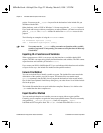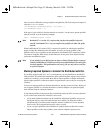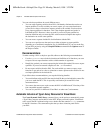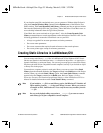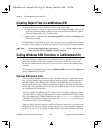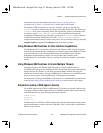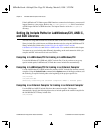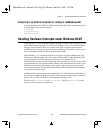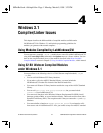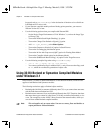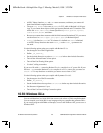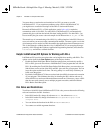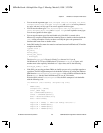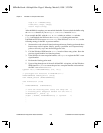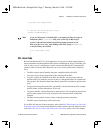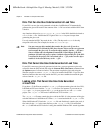
©
National Instruments Corporation 4-1 LabWindows/CVI Programmer Reference Manual
4
Windows 3.1
Compiler/Linker Issues
This chapter describes the different kinds of compiled modules available under
LabWindows/CVI for Windows 3.1 and includes programming guidelines for
modules you generate with external compilers.
Using Modules Compiled by LabWindows/CVI
You can generate a compiled .obj or .o module from a source file within LabWindows/CVI
using the Create Object File command in the Options menu of a Source window. You can
then use the compiled module in any of the methods described in the About Loadable
Compiled Modules section in Chapter 2, Using Loadable Compiled Modules, of this manual.
Using 32-Bit Watcom Compiled Modules
under Windows 3.1
You must adhere to the following rules for a 32-bit Watcom compiled module (.obj or
.lib file):
• You can call LabWindows/CVI library functions.
• If you make a call to the ANSI C Standard Library, you must include the
LabWindows/CVI header files instead of the Watcom header files.
• You cannot call Watcom C library functions outside the scope of the ANSI C Standard
Library.
• You can call
open, close, read, write, lseek, or eof, but you must include
lowlvlio.h from LabWindows/CVI.
• You cannot call functions in the Windows Software Development Kit (SDK), install
interrupts, perform DMA, or access hardware directly. These tasks must be done with a
Dynamic Link Library (DLL). The exception to this is that you can use the
inp and outp
functions.
• You cannot define a function as
PASCAL, pascal, or _pascal if you intend to call it
from source code in LabWindows/CVI. Also, you cannot use any non-ANSI-C-standard
00ProRef.book : 06chap04.fm Page 1 Monday, March 9, 1998 3:23 PM



